Shows

VoxDev Development EconomicsCan AI take off in Africa?
In this episode of Ideas in Development, we ask what needs to happen before AI can take off in Africa.Rose Mutiso talks us through the current state of energy and digital infrastructure in Africa, why leapfrogging is not guaranteed with AI, and what fundamental bottlenecks need to be addressed.Read the full show notes: https://voxdev.org/topic/technology-innovation/ai-africa-barriers-opportunities-and-policy
2026-02-1030 min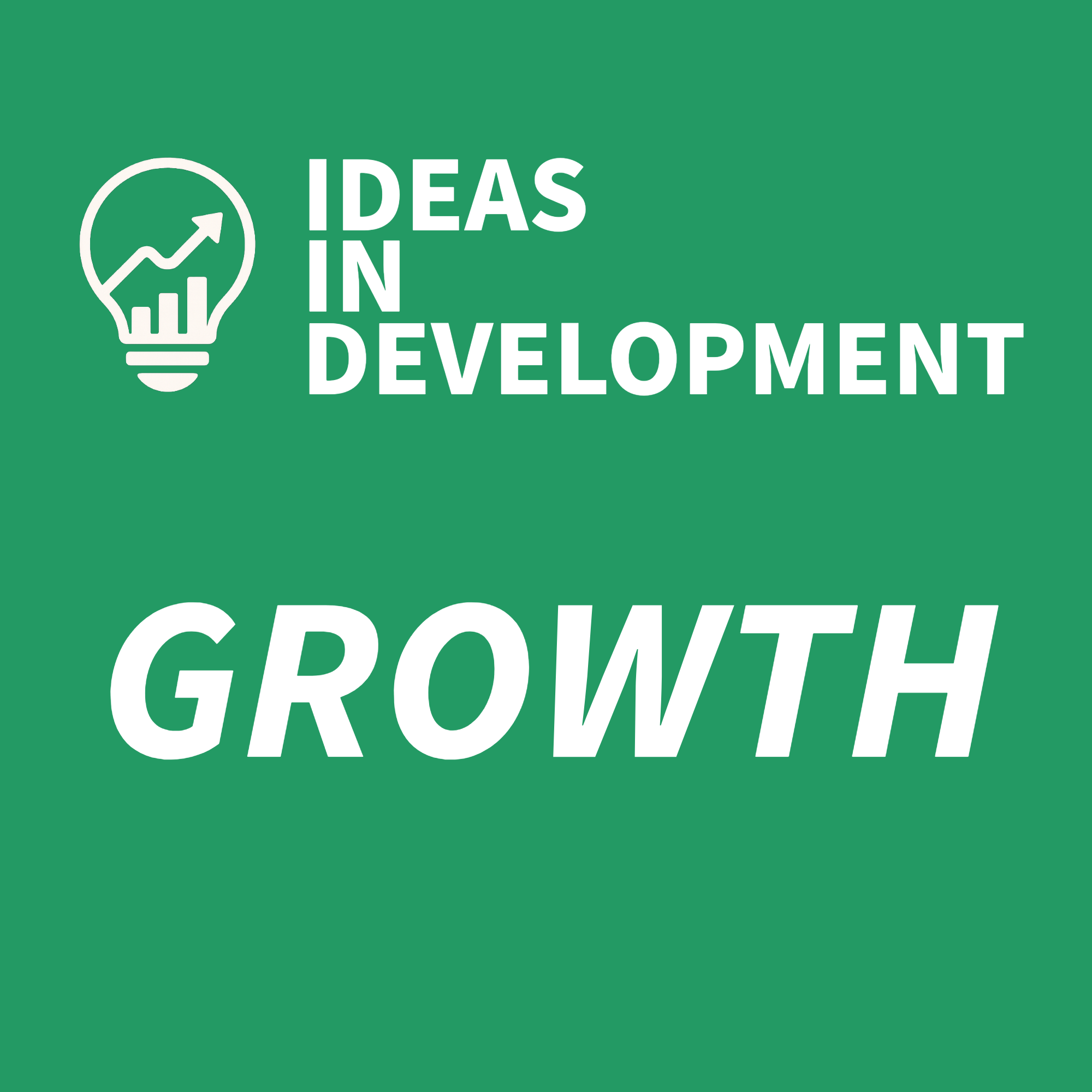
VoxDev Development EconomicsIdeas in Development: How Costa Rica became an FDI powerhouse
Ideas in Development is VoxDev's new second podcast! You can listen to Ideas in Development wherever you get your podcasts, or watch on YouTube. Don't forget to subscribe, so you won't miss an episode.Today we're bringing you one of the episodes from our new series. Oliver Hanney and Kartik Akileswaran ask how Costa Rica, a small country of approximately 5 million people, became an attractive hub that now hosts operations for more than 1,000 multinationals. To take us through this period of economic change, we were joined by Andres Valenciano Yamuni, who played his own role...
2026-01-1354 min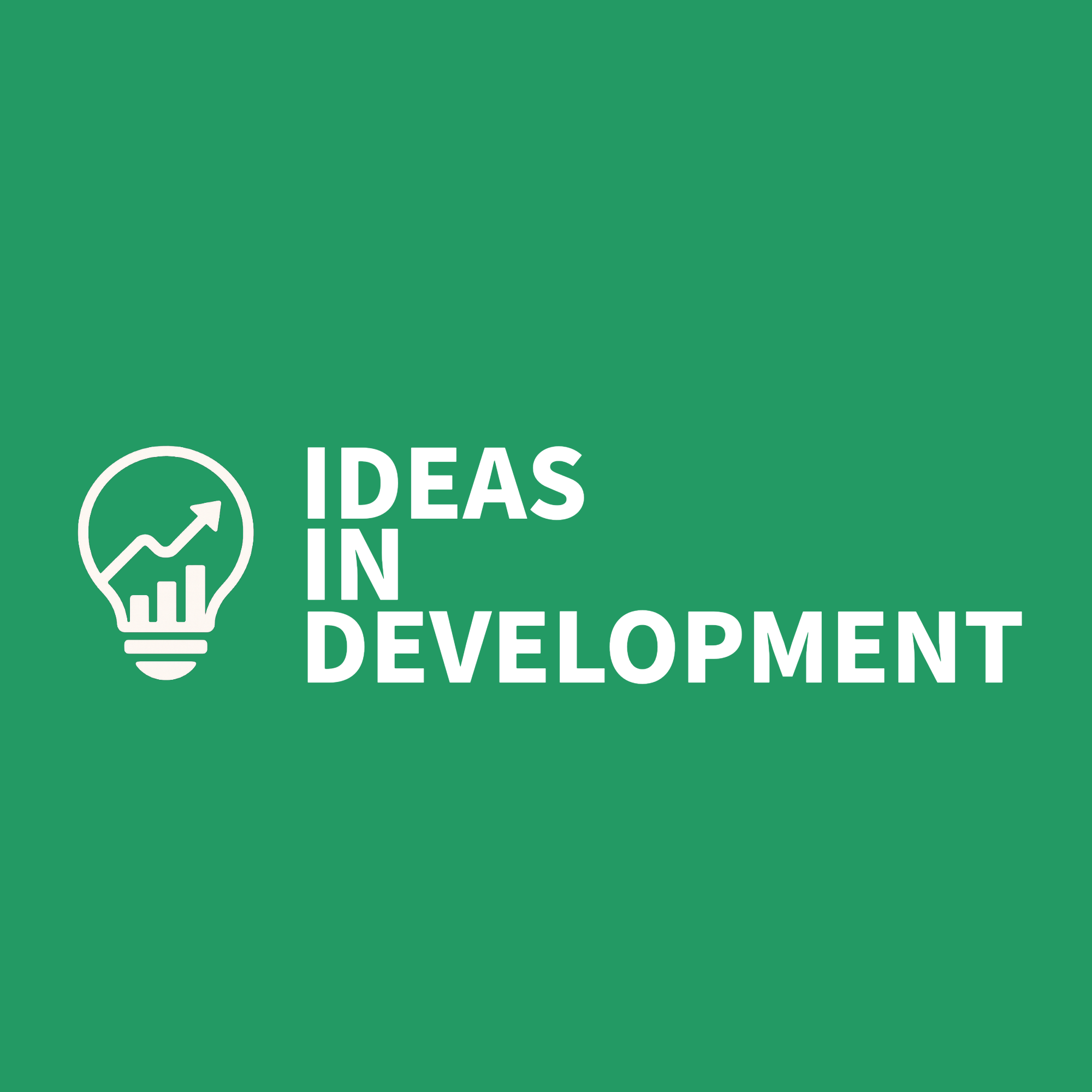
Ideas in DevelopmentS1: Introducing Ideas in Development from VoxDevThe new VoxDev podcast, Ideas in Development, will focus on the big questions in development. In this first episode, Managing Editor Oliver Hanney discusses why we are doing so, and previews some of the upcoming series we’ve been working on, on growth, AI and cities.
2026-01-0604 min
VoxDev Development EconomicsIntimate partner violence: Causes, costs and preventionIntimate partner violence (IPV) is common everywhere, but how common? What are its causes and effects? How can we do a better job of noticing it, measuring its impact – and ultimately, finding effective ways to stop it?
A new review of IPV looks at the recent economic research on the topic, what this work can tell us, and what questions are, so far, unanswered. Manisha Shah of UC Berkeley is one of the authors. She talks to Tim Phillips about why IPV is hard to measure, and even harder to prevent.
Read the full show notes he...
2025-11-2627 min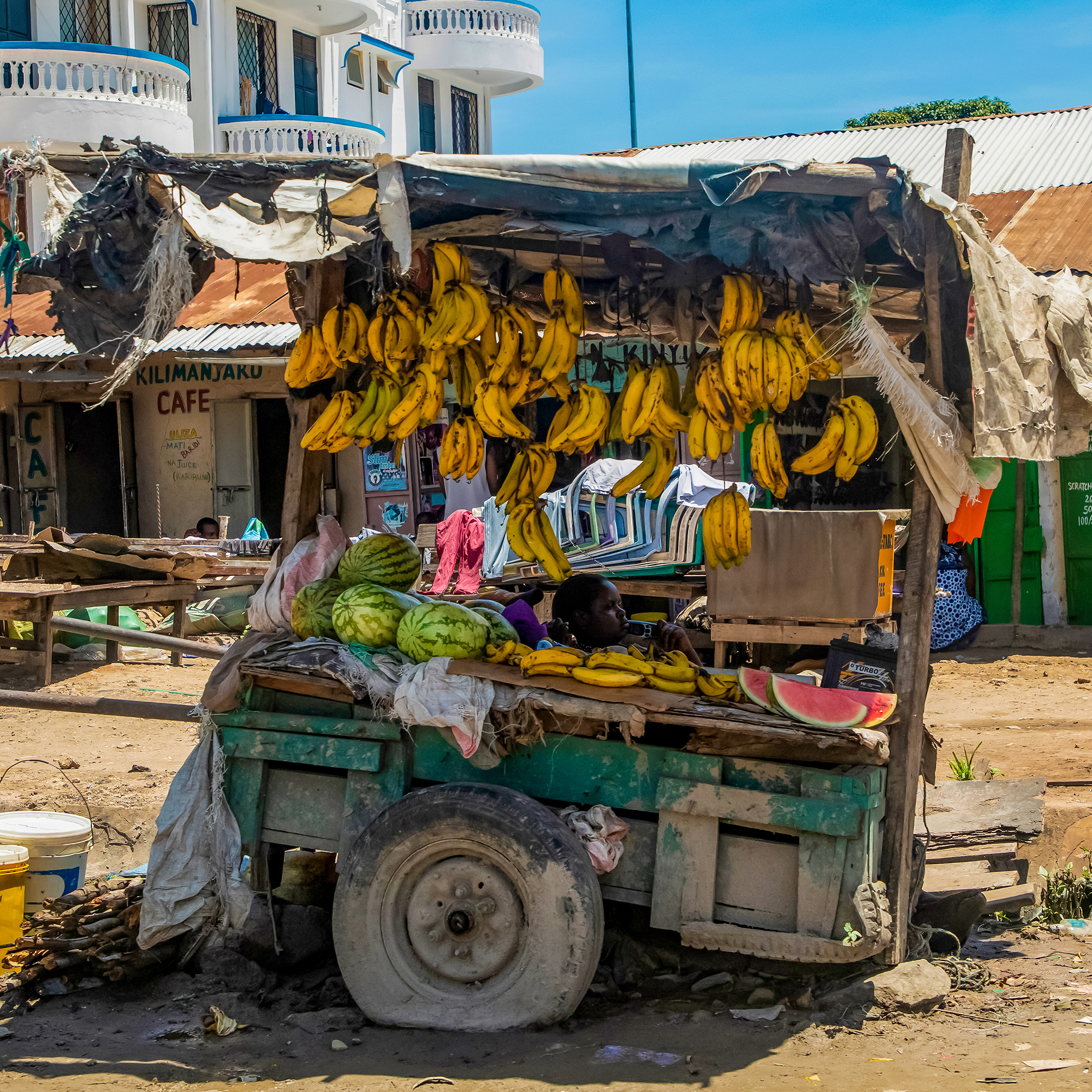
VoxDev Development EconomicsWhat have we learned about training entrepreneurs?How can we train the next generation of entrepreneurs? In developing economies, more than a billion dollars a year is spent on this type of training, but does it work, are we training the right people with the right skills – and what opportunities are there to do better?
David McKenzie of the World Bank is one of the senior editors of the latest version of the VoxDevLit on Training Entrepreneurs. He tells Tim Phillips what we know about what training can achieve, why training programmes are not “one size fits all”, and what this all means for policy.
2025-11-0530 min
VoxDev Development EconomicsWhat have we learned about women in the workforce?Everywhere, women’s labour force participation is lower than men’s. There are many reasons to close this gap, but there are just as many reasons why it’s hard to do it. Research is discovering new and important insights into how financial constraints, social norms, the backlash from man and the problems of travelling safely reduce the opportunities to work from home. But which policies can change this? Release 2 of the VoxDev Lit on Female Labour Force Participation sets out this research, and Rachel Heath of the University of Washington tells Tim Phillips what it tells us about how work h...
2025-10-0129 min
VoxDev Development EconomicsFood policy: Lessons and priorities for a changing worldIn 2025, the International Food Policy Research Institute (IFPRI) is 50 years old. “Lessons and Priorities for a Changing World”, its 2025 Global Food Policy Report, runs to just under 600 pages and covers the last five decades of progress in improving the world’s food systems – but also the challenges that remain, and the need for policy to keep evolving if we are going to build sustainable, healthy food systems.
Johan Swinnen and Purnima Menon of IFPRI talk to Tim Phillips about the importance of agrifood resilience. With changes in the global economy, the equity and effectiveness of these food value chains wi...
2025-08-2730 min
VoxDev Development EconomicsMobile money in GhanaHow can we design digital financial inclusion that minimizes fraud and maximises the benefit to the community in rural, low-trust, or cash-heavy economies? That’s the question posed by three studies of how mobile money works, or sometimes does not work, in Ghana’s villages. The author of those three studies: Francis Annan of Berkeley.In part one of a two-part VoxDev Talks special, Tim Phillips talks to Francis about this research, which has been a big part of his working life since he was a graduate student, the innovative interventions to minimise fraud and misconduct from the agent...
2025-07-2931 min
VoxDev Development EconomicsThe economics of period povertyStigma, shame and social norms around menstruation can prevent women and girls managing their periods with dignity and hygiene in low-income settings. So how can we provide information, influence those norms, and change behaviour to improve women’s health and well-being? Silvia Castro of LMU Munich and Kristina Czura of University of Groningen have conducted extensive field research in Bangladesh and other countries.
They tell Tim Phillips how we can reduce the stigma and taboo around menstruation and give women and girls the information they need at home, at school, and at work.
Read about Silvia’s work...
2025-07-2335 min
VoxDev Development EconomicsWhy “brain drain” is an incomplete story of migrationMany developed countries are creating immigration policies designed specifically to attract the most talented migrants. We often assume that when those skilled and educated citizens migrate from low-income countries in search of high-paying opportunities, it causes a “brain drain” in their home countries, delaying or hobbling development. A new article in the journal Science puts that assumption to the test and finds that there is also the possibility of a brain gain at home, as investments in education, remittances, and the contribution of the diaspora to investment and changing norms can more the compensate for the loss of skills.
C...
2025-07-0929 min
VoxDev Development EconomicsMinibuses, major gains: Rethinking urban transitIn the second of our special episodes recorded at the 5th annual STEG conference, Lucas Conwell of UCL talks to Tim Phillips about how the private minibus networks, such a distinctive feature of urban transit in developing country cities, can improve their service when there is little room for public investment or regulation.
If you have ever tried them, they can seem chaotic, but would require large or small policy tweaks to make them work efficiently, and what would those tweaks be? Lucas has mapped both the service and the opinions of passengers for Cape Town’s public tra...
2025-07-0320 min
VoxDev Development EconomicsGas flaring threatens agriculture and livelihoods in NigeriaThis week on VoxDev talks we have two special episodes recorded at the 5th annual STEG conference. STEG is a research initiative that aims to provide a better understanding of structural change, productivity, and growth in low- and middle-income countries.
For many economies in the Global South, fossil fuel extraction has been both a blessing
and a curse. Nowhere more so than Nigeria, where oil production generates huge
revenues, but also creates an environmental and social burden for the people who live in oil producing regions.
Arinze Nwokolo of Lagos Business School has investigated o...
2025-07-0115 min
VoxDev Development EconomicsGoing for economic growth: Lessons from IndonesiaIn October 2024, Prabowo Subianto became president of Indonesia. He inherits the “Golden Indonesia” vision: By the time the country celebrates 100 years of independence in 2045, it aims to be one of the five largest economies in the world. But if Indonesia remains dependent on commodity exports like palm oil, coal, natural gas, and rubber, does it risk getting stuck in the “middle income trap” – too wealthy to compete with low-wage nations, but without the human capital or technology to become a HIC?Chatib Basri is an economist and former finance minister of Indonesia. He tells Tim Phillips about the industrial...
2025-06-2528 min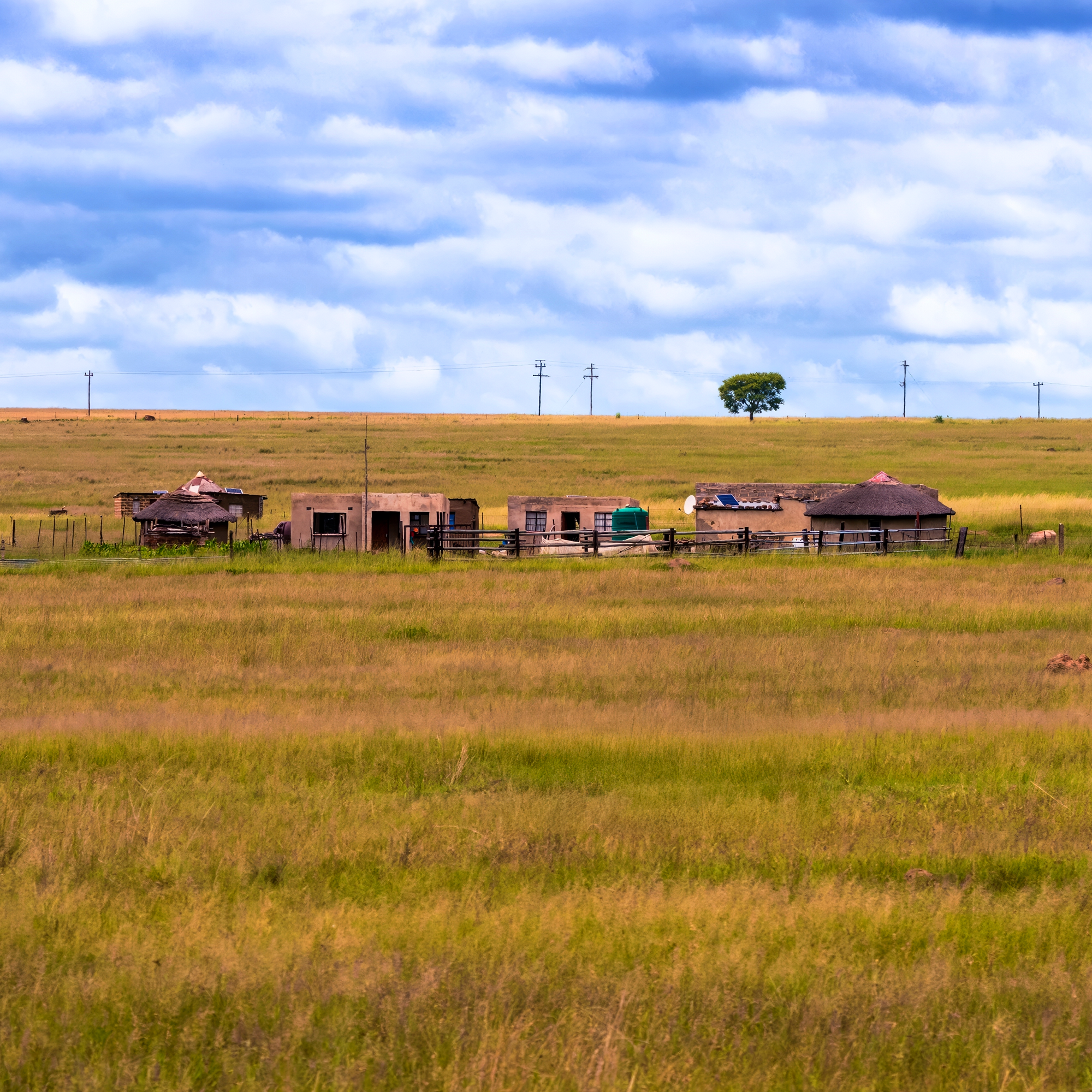
VoxDev Development EconomicsDevelopment Dialogues: What is the role of small farms in the future of agriculture?In the latest episode of the collaboration between Yale’s Economic Growth Center and VoxDev, host Catherine Cheney discusses one of Africa’s most persistent development challenges: the low productivity of smallholder farmers. Despite decades of investment, innovation, and policy reform, yields on African small farms remain significantly below those in high-income countries. While the limitations of smallholder models, that doesn’t mean that the problem is easy to solve, not least because the way that land is owned my make consolidation impossible. The result: fewer opportunities for structural transformation and rural development.Catherine is joined by Gérardine...
2025-06-1833 min
VoxDev Development EconomicsWhy we need to invest in foundational learningIt was almost business as usual at the Education World Forum in London last month. At the world’s largest annual gathering of education and skills ministers, this year’s theme was & "Building stronger, bolder, better education together." But the context was far from routine. The conference took place against a backdrop of global funding cuts to education programmes—the Institute for Economics and Peace estimates that more than 35 million children around the world depend on foreign aid for their basic education. How can policy be strong, bold, or better in the face of these cuts?
Ben Piper, Direct...
2025-06-1130 min
VoxDev Development EconomicsUnderstanding Brazil’s falling income inequalityFrom Brazil, we bring good news for poverty reduction: Brazil’s formerly sky-high wageinequality is not quite so sky-high anymore. From 1995 to 2015 Brazil became a more equal society, a trend that contrasts with rising inequality during that time in high-income countries. A soon-to-be-published article in the Journal of Economic Literature reviews the research that estimates the reduction, discovers the factors that have contributed to it and the mechanisms that have driven it. Alysson Portella of Insper tells Tim Phillips why there is no silver bullet that policymakers can use to reduce inequality, and why both implementing and evaluating po...
2025-06-0423 min
VoxDev Development EconomicsLovegrass Ethiopia: Building a business from the roots upAs aid programs are cut across the developing world, the focus falls on what investors can do to help create economic growth. Someone who knows all about impact investing is Yonas Alemu, the founder of Lovegrass Ethiopia, which creates products from teff, a gluten- free grain that's native to Ethiopia and sells them across the world. Yonas abandoned a successful career in investment banking in London to create a business in the country of his birth. He spoke to Tim Phillips about how entrepreneurship can stimulate positive change across Africa and how negative stereotypes of Africa’s dependency on aid di...
2025-05-1432 min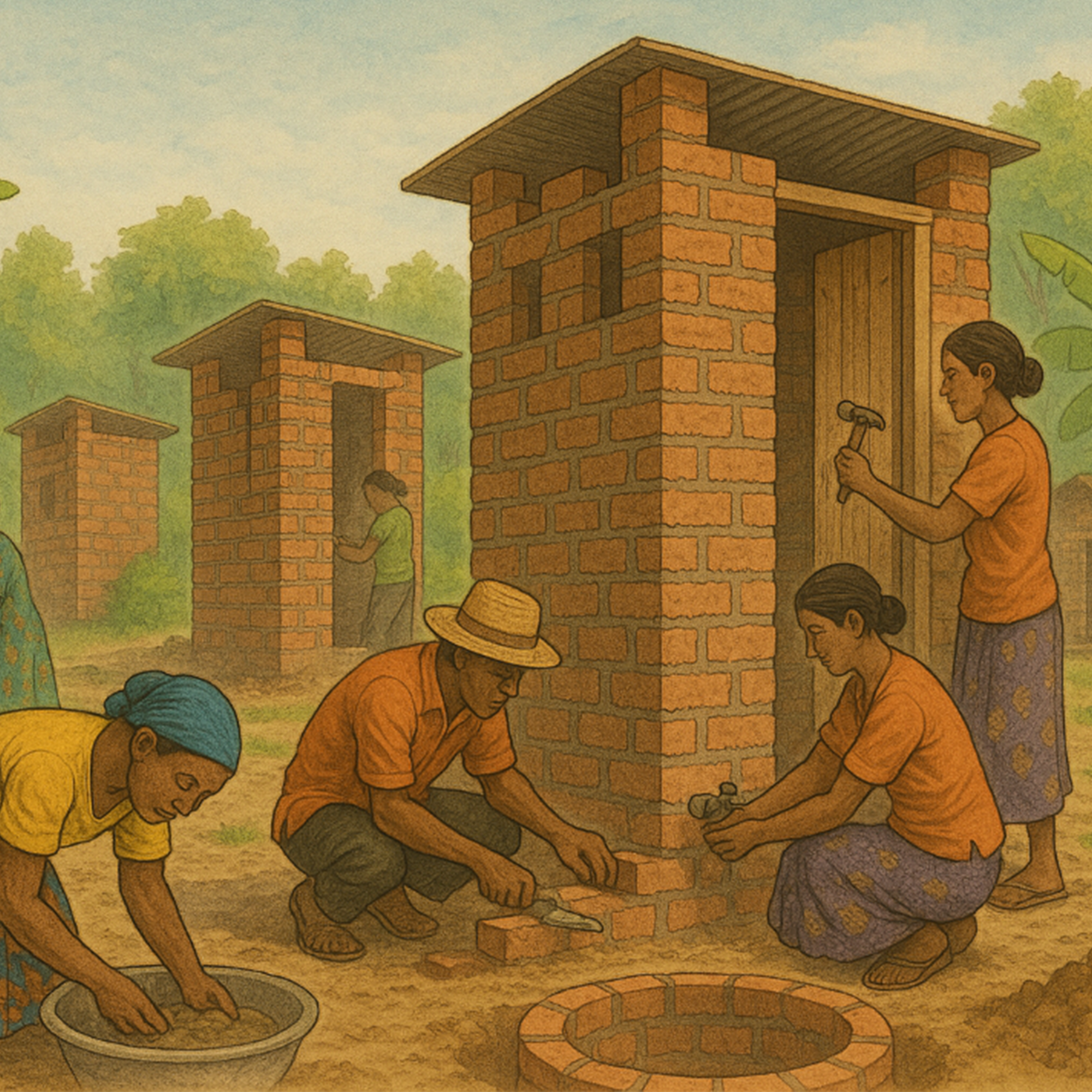
VoxDev Development EconomicsImproving sanitation: What works and what doesn’tMillions of people around the world have no access to sanitation. They defecate in the open, or in facilities where it’s hard to avoid human contact, unavoidably spreading disease. One of the Sustainable Development Goals that you don’t hear about so much is the call to end open defecation by 2030. What progress are we making, and what health improvements are we seeing so far? In the latest of our episodes based on J-PAL’s policy insights, Karen Macours of the Paris School of Economics, also co-chair of J-PAL's Health Sector, tells Tim Phillips about how we can achieve this d...
2025-05-0818 min
VoxDev Development EconomicsImproving worker well-beingWe often talk about providing not just jobs, but decent jobs, in developing countries. But in many parts of the world, workers still have incredibly harsh working conditions.
There have been interventions at the firm level to create safer workplaces, better health,
higher job satisfaction. But have they succeeded? And, if these policies succeed in raising worker well-being, is there a cost or a benefit for the employer?
In the latest in our collaborations with J-PAL to discuss their policy insights, Achyuta
Adhvaryu, UC San Diego about their review of the research into worker well-being...
2025-05-0130 min
VoxDev Development EconomicsWhat have we learned about the informal sector?A large proportion of economic activity takes place in the informal sector in every country, particularly in LMICs. Informality, and the lack of rights and protection that goes with it, affects the families who live in slums, the people who take off-the-books jobs, and the firms that choose to skirt regulations. It also affects the governments who want to increase the size of the formal sector – and the revenue they can collect from it.
Gabriel Ulyssea of UCL and Mariaflavia Harari of the University of Pennsylvania are two of the editors of new VoxDevLit that examines what we kn...
2025-04-2436 min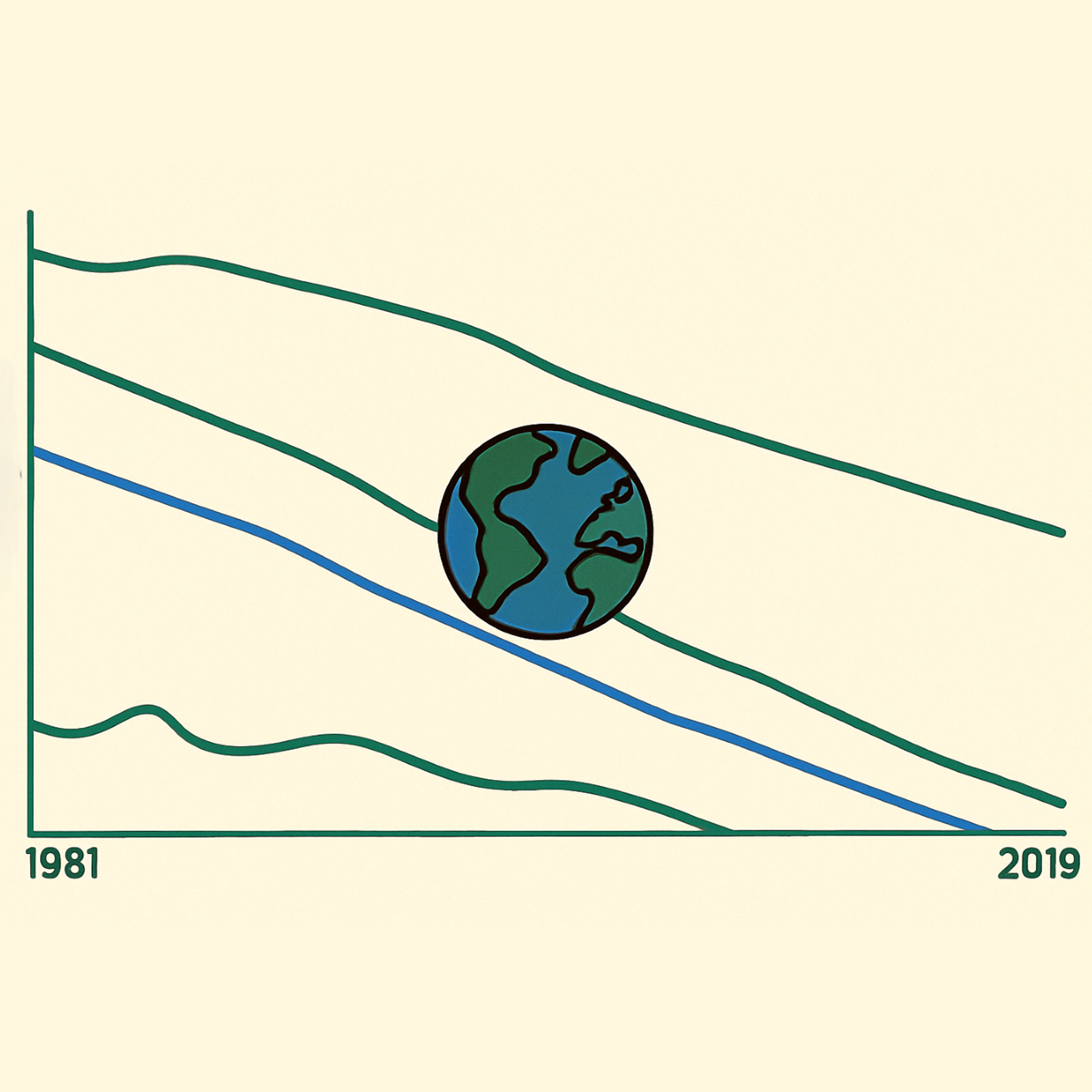
VoxDev Development EconomicsHow poverty fellIn 1981, 44% of the world’s population were living in extreme poverty. By 2019, that number had fallen to 9%. This seems like a good news story, but how did it happen?Tom Vogl of UC San Diego is one of the authors of a paper called simply, “How PovertyFell”. In it, they use surveys to track the progress out of poverty of individuals andgenerations, to discover whether this progress has been driven by individuals and families becoming less poor over their lives or by successive generations who are less likely to be born into poverty. Has the pr...
2025-04-1722 min
VoxDev Development EconomicsDevelopment Dialogues: Who will pay for the global energy transition?In the latest episode of the collaboration between Yale’s Economic Growth Center and VoxDev, host Catherine Cheney is asking one of the most complex questions in global development: how can the clean energy transition move forward quickly and equitably, particularly for low- and middle-income countries still grappling with poverty? There is a balance between emissions reductions and economic growth. While wealthy nations historically contributed the most to climate change, LMICs are now under pressure to take costly action to avoid it.
Catherine is joined by Max Bearak of the New York Times, Jessica Seddon of Yale Jackson Sc...
2025-04-1539 min
VoxDev Development EconomicsProfit shifting hits developing countries hardestMultinational enterprises in every industry are shifting profits to low-tax jurisdictions. These corporate tax havens reduce tax revenues everywhere, but that hits hardest in developing countries where corporate taxes are a larger part of the overall tax take. The International Growth Centre has published a policy toolkit report into corporate tax havens. Ludvig Wier, the author, explains to Tim Phillips how profit shifting works, how a global initiative is reducing the allure of tax havens, and how AI might level the playing field for overstretched developing country tax offices.
Read the full show notes on VoxDev: https://voxdev...
2025-04-0224 min
VoxDev Development EconomicsDevelopment Dialogues: Are vocational training programmes effective?Vocational training is often seen as a silver bullet for unemployment and poverty, but does the evidence support that view? Why do so many training programs fail to lead to real job opportunities, and are we asking too much of these programs – or maybe the wrong questions entirely? In the latest episode of the collaboration between Yale’s Economic Growth Center and VoxDev, host Catherine Cheney is joined by Oriana Bandiera, professor of Economics at the London School of Economics, Stefano Caria, professor of economics at the University of Warwick, and Munshi Sulaiman, Director of Research at the BRAC Institute of G...
2025-04-0137 min
VoxDev Development EconomicsCan safe transport unlock women’s labour force participation?A fundamental part of women’s economic empowerment is helping women who want to work outside the home to find and keep a job. A major part of that decision is ensuring that they can travel to work without fear of stigma, harassment or violence on public transport. In Pakistan, a study set out to discover whether an offer of safe commuter transport would tempt women who are currently not looking for a job.
Kate Vyborny of the World Bank spoke to Tim Phillips from Lahore, where the study
took place, about the challenges women face in co...
2025-03-2723 min
VoxDev Development EconomicsIs debt leading to the unsustainable exploitation of natural resources?How does rising external debt in low-income countries affect the natural capital that
sustains our livelihoods? A new paper focuses on three river basins that are vital to the
livelihoods and biodiversity of the countries that surround them, suggesting ways that
we can both measure and conserve that natural capital in the face of the economic
forces that threaten it. Pushpam Kumar of UN Environment Programme talks to Tim
Phillips about the alarming rise in the ratio of debt to natural capital for the 21 countries whose wealth relies on the river basins that they border...
2025-03-1929 min
VoxDev Development EconomicsSimon Johnson on geopolitics, AI, and the future of global developmentGeopolitical alliances are changing rapidly. Technological innovation is reshaping our economies. These trends offer a cocktail of risk and reward for countries in the global south. They are also both topics that are familiar to Simon Johnson of MIT.
Simon speaks to Tim Phillips about how policy in developing countries should respond to President Trump’s deglobalization agenda, how artificial intelligence changes the future for all countries, and where growth and jobs will come from in the future.
And of course, what it was like to win the Nobel Prize.
Read the full show no...
2025-03-1232 min
VoxDev Development EconomicsRebuilding Sudan’s digital infrastructure amidst conflictCivil war – the latest in a long series of armed conflicts – broke out in Sudan in April
2023. Today, more than half of the population needs humanitarian aid, and almost 15
million people have been displaced. The war has also devastated the digital
infrastructure in Sudan, deepening the crisis. African Renaissance Ventures is a VC firm
that backs entrepreneurs who use technology to solve major development challenges.
Magdi Amin tells Tim Phillips about how its infrastructure might be restored, and the
risks to Sudan’s population if it is not.
Read the full show notes...
2025-03-0526 min
VoxDev Development EconomicsDevelopment dialogues: The future of evidence-based policy-makingWith populist politicians taking power around the world, policymakers are relying lesson research and expertise, as their political narratives prioritise emotion and identityover facts. This may have long-term consequences for global development: not leastin the US, where the Agency for International Development has been dismantled,with thousands of staff laid off. Critical development programs have been halted, andthe future of US foreign assistance is in limbo. In the latest episode of thecollaboration between Yale’s Economic Growth Center and VoxDev, host CatherineCheney asks Rory Stewart, former UK Se...
2025-02-2442 min
VoxDev Development EconomicsThe economics of ecosystemsHow does a healthy ecosystem benefit humanity? How does the normal functioning
of the economy impact natural habitats and animal populations? And what are the
costs and benefits of conservation? Eyal Frank of the University of Chicago works at
the intersection of economics and conservation. He speaks to Tim Phillips about how
economic growth often has a hidden environmental cost.
Read the full show notes on VoxDev: https://voxdev.org/topic/energy-environment/economics-ecosystems-how-nature-and-economies-interact
2025-02-1236 min
VoxDev Development EconomicsPeacemaking, peacebuilding and post-war reconstructionThe Reducing Conflict and Improving Performance in the Economy (ReCIPE)programme, established in April 2024, aims to provide a better understanding of thelinks between conflict, economic growth, and public policies. One of its many themesis on what happens post-conflict: peacemaking, peacebuilding, and reconstruction.Salma Mousa and Lisa Hultman, theme leaders, talk to Tim Phillips about whypeacebuilding must always be both bottom-up and top-down if it is going to work.Read the full show notes on VoxDev: https://voxdev.org/topic/institutions-political-economy/peacemaking-peacebuilding-and-post-war-reconstruction
2025-02-0531 min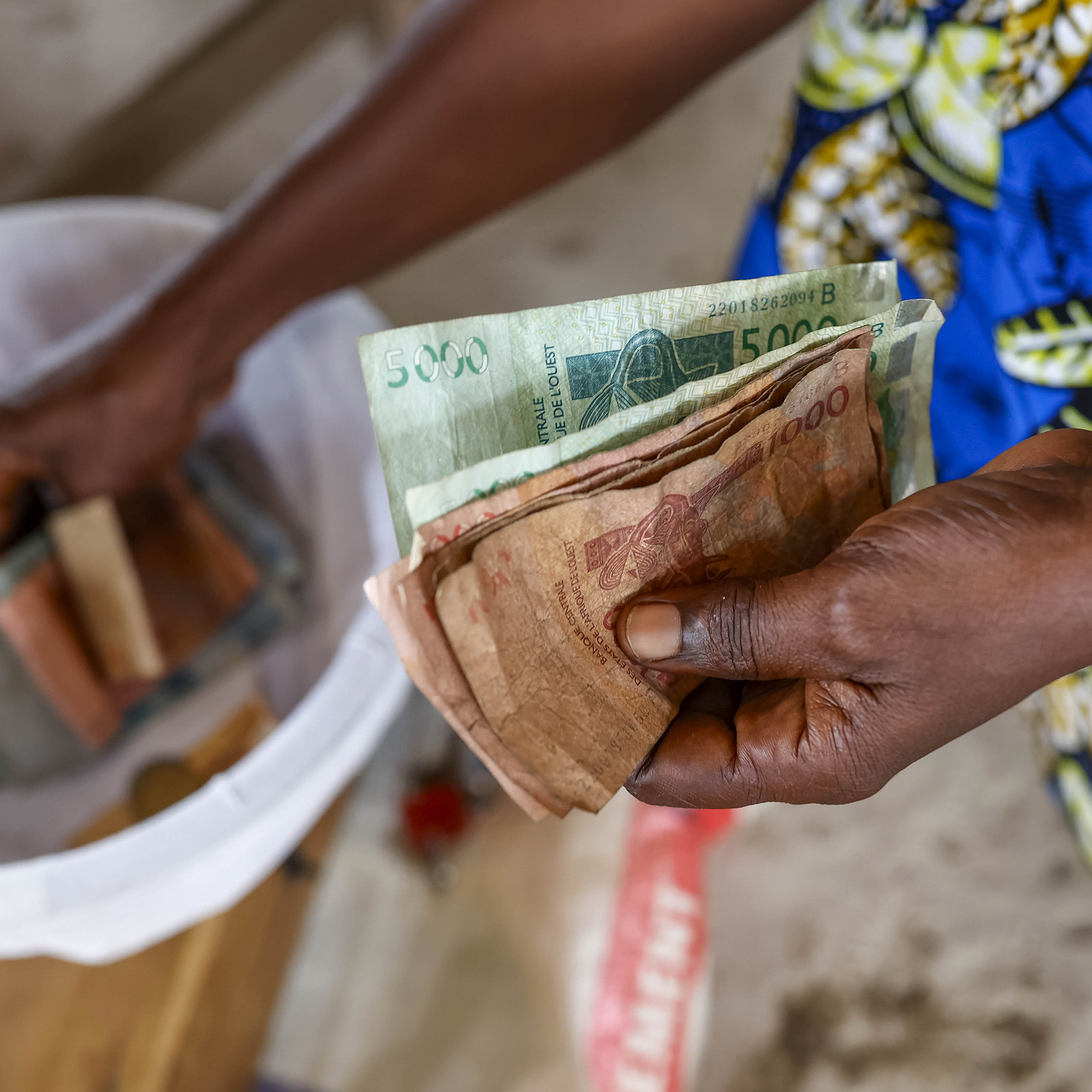
VoxDev Development EconomicsWhat have we learned about microfinance?Published this week: the latest VoxDevLit covers microfinance. After many decades,microfinance is pervasive and popular in developing countries but is oftencontroversial. What have we learned about what works, how it works, and who ithelps – and what is there still to understand? Authors Simon Quinn, MuhammadMeki, and Jing Cai talk to Tim Phillips about the problems of evaluation, thesurprising uses to which microfinance has been put, and the lessons thatpolicymakers can learn from the story of microfinance so far.Read the full show notes here: https://voxdev.or...
2025-01-3031 min
VoxDev Development EconomicsHow can countries develop their economies in a changed world?In 2018, “Unorthodox policies for unorthodox times” was the title of the first in a
series of blogs published by the International Growth Centre. The authors argued
that the environment for development had changed, and so development policies
should change too. Seven years on, as delegates gather in Davos for the 2025
Annual Meeting of the World Economic Forum, how prescient was the analysis in
these articles, and what does this mean for future growth policy? Tim Dobermann
and Francesco Caselli talk to Tim Phillips about which “unorthodox policies” the
delegates to Davos should be discussi...
2025-01-2229 min
VoxDev Development EconomicsRethinking evidence in development economicsMany development economists would argue that the most important innovation of
the last two decades has been a commitment to use only rigorous evidence for
policy, and usually what they mean is evidence generated by RCTs. But are
systematic reviews of the results a useful guide to policy? And should development
economics continue to be focusing so much on the programmes that flow from RCT-
driven research? Lant Pritchett of LSE talks to Tim Phillips about the nature of
“rigorous” evidence in development economics, and the future of the discipline itself.
Read the...
2025-01-1528 min
VoxDev Development EconomicsHow does internet connectivity impact developing economies?For more than 30 years, optimists about technology have been telling us that the
internet is transforming our economies. What is the evidence that this has happened,
or is happening, in low- or middle-income countries? And if the promise has not been
fulfilled, why not? Lin Tian is one of the authors of a new paper that examines the
evidence so far. She talks to Tim Phillips about what the research is telling us.
Read the full show notes on VoxDev: https://voxdev.org/topic/macroeconomics-growth/how-does-internet-connectivity-impact-developing-economies
2025-01-0823 min
VoxDev Development EconomicsThe role of evidence at development finance institutionsChris Woodruff has pioneered academic research into businesses, large and small, in low-income countries, He is also a non-executive Director of British International Investment (BII), a development finance institution and impact investor that partners with more than 1,500 businesses in emerging economies, with assets of £8.1 billion. Chris talks to Tim Phillips about what he has learned from his association with BII into how research can inform policy and investment – and whether economists worry too much about external validity.
Read the full show notes on VoxDev: https://voxdev.org/topic/firms/role-evidence-development-finance-institutions
2024-12-1929 min
VoxDev Development EconomicsDevelopment Dialogues: How can emerging economies break free from the sidelines of global trade?In the second episode of the collaboration between Yale’s Economic Growth Center
and VoxDev, Catherine Cheney speaks to Amit Khandelwal of the Yale Jackson
School of Public Affairs, Isabela Manelici of the London School of Economics, and
Arvind Subramanian of the Peterson Institute, As globalisation faces new headwinds,
they discuss the outlook for those countries that didn’t reap the trade benefits from
the spread of globalisation, and the new challenges for LMICs.
2024-12-1735 min
VoxDev Development EconomicsWhy do protests matter?When citizens demand change and feel they are not being heard, they protest on thestreets. Thanks to social media and TV coverage, we see protests every night on thenews. But has the frequency or the character of protests changed? Who isprotesting, and what makes them take to the streets? David Yang and NoamYuchtman are two of the authors of a new review of the literature on protests. Theytell Tim Phillips what they discovered.Read the full show notes on VoxDev: https://voxdev.org/topic/institutions-political-economy/why-do-protests-matter-exploring-their-causes-and-lasting
2024-12-1232 min
VoxDev Development EconomicsHow the urban environment can adapt to climate changeIn our final episode based on this year’s BREAD-IGC virtual PhD-level course on the
economics of cities in low and middle-income countries, Matthew Kahn of USC and
Siqi Zheng of MIT focus on sustainable urbanisation. They tell Tim Phillips about how
cities can adapt in the face of climate change, both its inhabitants and its buildings.
Read the full show notes on VoxDev: https://voxdev.org/topic/migration-urbanisation/how-urban-environment-can-adapt-climate-change
2024-12-1024 min
VoxDev Development EconomicsHelping jobseekers signal their skillsIf you’re applying for a job, you want to know what you’re good at, and be able to
prove it to the recruiter. If doing the recruiting, you want some evidence about who
the best candidates would be. In low- or middle-income countries, this information is
often in short supply. How does this affect who gets a job, and the hiring process? In
the latest in our collaborations with J-Pal to discuss their policy insights, Marianne
Bertrand of Chicago Booth School, also Co-Chair, Labor Markets at J-Pal, and
Stefano Caria of the Univ...
2024-12-0517 min
VoxDev Development EconomicsThe history of cash transfersThere are more than 1.4 million papers about cash transfers. They inspired Ugo
Gentilini, lead economist for social protection at the World Bank, to spend five years
researching the surprisingly long and rich history of these cash transfers. The
resulting book, called “Timely Cash: Lessons From 2,500 Years of Giving People
Money”, shows that the political and ethical debates that cash transfers inspire are
centuries, sometimes millennia, old. In a special episode to mark the launch of his
book, Ugo explains to Tim Phillips how we can draw on history to understand the
current, sometimes heat...
2024-12-0337 min
VoxDev Development EconomicsThe high price of Pakistan’s polluting power contractsWhere does electricity come from? In developing countries, the power sector useslong-term, rigid contracts called power purchase agreements (PPAs) between aprivate generator and government-owned utilities. These PPAs are not usuallycompetitive, their terms – including payment guarantees by which suppliers get paideven when there is no demand – are often secret, they can last for up to 30 years,and they guarantee the use of fossil fuels far into the future. Sugandha Srivastavtells Tim Phillips about how the privatisation of electricity generation has created away to move money “from the public coffer...
2024-11-2729 min
VoxDev Development EconomicsHow government analytics can improve public sector implementationCan better data analysis improve the way that a government functions. The
Government Analytics Handbook, published by the World Bank, is both a practical
how-to guide and a fascinating insight into how administrators can improve the
quality of government analytics. Daniel Rogger and Christian Schuster are the
editors. They talk to Tim Phillips about the challenges, the potential – and their work
to create a community of analysts.
Read the full show notes on VoxDev: https://voxdev.org/topic/public-economics/how-government-analytics-can-improve-public-sector-implementation
2024-11-2046 min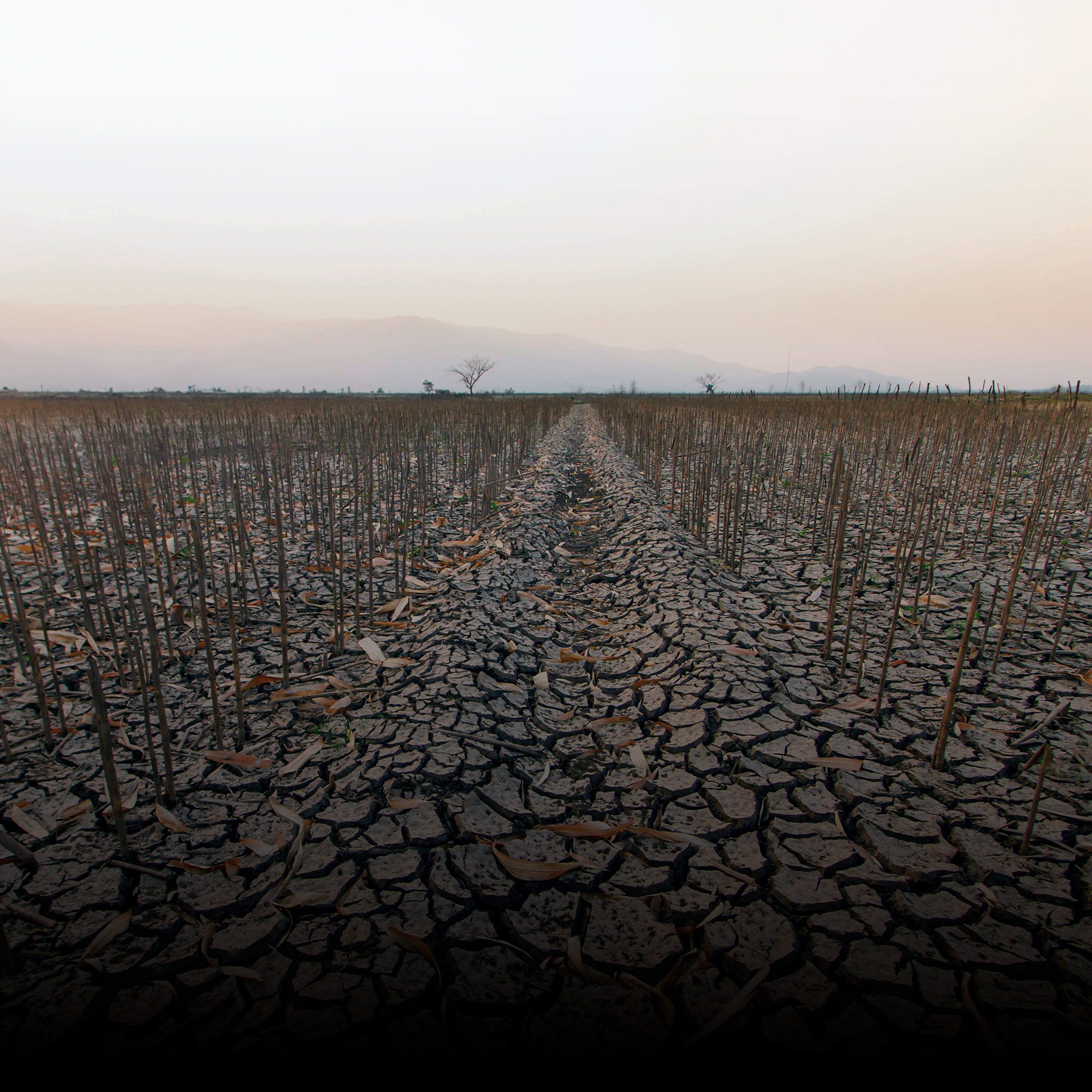
VoxDev Development EconomicsStrengthening climate resilience in agricultureExtreme weather events are becoming more frequent, and so it has never beenmore important to increase the resilience of small-scale farmers. What doesresearch tell us are the most effective interventions and policies to do this? In thelatest of our special episodes to discuss J-PAL policy insights, Tavneet Suri talks toTim Phillips about how we can strengthen the resilience of farmers to climatechange.Read the full show notes on VoxDev: https://voxdev.org/topic/energy-environment/financing-climate-adaptation-what-works-what-doesnt-and-can-carbon-credits
2024-11-0722 min
VoxDev Development EconomicsDevelopment Dialogues: Financing climate adaptationIn the first episode of a regular collaboration between Yale's Economic Growth
Center and VoxDev, host Catherine Cheney speaks to Catherine Wolfram and
Namrata Kala of the MIT Sloan School, and Rohini Pande of Yale, about how to
finance climate adaptation. They discuss what works and what doesn't, what role
carbon markets play, and also discuss the upcoming United Nations Climate
Change Summit, COP 29.
Read the full show notes on VoxDev: https://voxdev.org/topic/energy-environment/financing-climate-adaptation-what-works-what-doesnt-and-can-carbon-credits
2024-11-0534 min
VoxDev Development EconomicsThe role of cities in economic developmentIf you go to the IGC web site, you will discover the BREAD-IGC virtual PhD-levelcourse in economics. The topic for 2024 is urbanisation and the economics of citiesin low and middle-income countries. Ed Glaeser and Diego Puga gave the first talk,about the dynamic city. They talk to Tim Phillips about what attracts people to cities,how those cities constantly change and adapt to the needs of those new arrivals,and the urgent need for research into how cities grow and change outside high-income countries.Read the full show notes...
2024-10-3023 min
VoxDev Development EconomicsCan we use experiments to understand institutions?Institutions help to determine economic growth. But studying how they do this using
the rigorous experimental techniques popularised in the credibility revolution is
difficult. A new review highlights an exciting new wave of empirical research into the
consequences of institutional change. Michael Callen and Jonathan Weigel talk to
Tim Phillips about how we can do experiments about institutions.
Read the full show notes here: https://voxdev.org/topic/institutions-political-economy/can-we-use-experiments-understand-institutions
2024-10-2330 min
VoxDev Development EconomicsWhat can we learn from food economics?A new open access textbook called Food Economics analyses the connections
between agriculture and resource use, commodity trade, food businesses, and retail
markets. It covers how food is produced, brought to market, and sold. But it also
looks at consumption: why many have too little food, and the problems caused by
malnutrition. Will Masters and Amelia Finaret, the authors, tell Tim Phillips who is it
for, and what they can learn.
Read the full show notes here: https://voxdev.org/topic/agriculture/what-can-we-learn-food-economics
2024-10-1632 min
VoxDev Development EconomicsHow connecting firms to markets can promote economic developmentSmall businesses in LMICs provide most of the employment. But they could provide
many more jobs if the best of them could unlock their potential to grow. In the latest
of our series of VoxDev Talks based on J-PAL special reports, Tim Phillips talks to
David Atkin about how we can do a better job of connecting firms and entrepreneurs
to markets.
Read the full show notes here: https://voxdev.org/topic/firms/how-connecting-firms-markets-can-promote-economic-development
2024-10-0919 min
VoxDev Development EconomicsThe gap between education policy and practiceMore children than ever in LMICs go to school – but they still don’t learn as much aswe would want, and the difference between the educational haves and the have-notsis widening. Noam Angrist joins Tim Phillips to talk about the size of the gap betweeneducation policy and practice, why it exists, why economic development alone isn’tclosing it, and how we can improve policy implementation in future.Read the full show notes here: https://voxdev.org/topic/education/gap-between-education-policy-and-practice
2024-10-0318 min
VoxDev Development EconomicsHow do floods impact economic development?Dev Patel of Harvard describes Bangladesh as “ground zero for the harmful effects
of climate change”. Extreme weather events, particularly floods, are already affecting
the lives of millions of people who live there and are making life more difficult for the
country’s farmers. He tells Tim Phillips how he harnessed machine learning to create
for the first time reliable global data on flooding – and also used his methods to find a
way to give Bangladesh’s beleaguered farmers better data on what crops to grow.
Check out the full show notes on VoxDev: ht...
2024-09-1828 min
VoxDev Development EconomicsHow meritocracy varies across the worldIn a meritocracy more people can do jobs that match their skills, making them more productive. It’s not just good for them, it’s good for the economy too. So how effective are the policies that try to make countries more meritocratic? Oriana Bandiera and Ilse Lindenlaub tell Tim Phillips how much productivity countries are sacrificing because the wrong people are in the wrong jobs, which countries are most meritocratic, and how we can best help the others to catch up.
Check out the full show notes on VoxDev: https://voxdev.org/topic/macroeconomics-growth/how-meritocracy-varies-across-world
2024-09-1117 min
VoxDev Development EconomicsImproving access to clean waterMore people die from contaminated drinking water and poor sanitation than from
water-related disasters. What are the consequences if we don’t provide safe drinking
water, especially for children, and what technologies and policies can accelerate that
change? In the first of a series of VoxDev Talks based on J-PAL Policy Insights,
Pascaline Dupas of Princeton, also Scientific Director for J-PAL Africa, explains the
importance of clean water to Tim Phillips.
Check out the full show notes on VoxDev: https://voxdev.org/topic/health/improving-access-and-usage-clean-water
2024-09-0422 min
VoxDev Development EconomicsThe past, present and future of development economicsPranab Bardhan of Berkeley has recently published a memoir called Charaiveti: An
Academic’s Global Journey. It takes in his childhood in India, and his academic
career in the UK, India and the US. The book takes in topics as diverse as whether
the questions Marx asked are still relevant today, what economists can learn from
anthropologists, what the Chinese government got right (and wrong), and the
dangers of offering policy prescriptions for places we have never visited. He talks to
Tim Phillips about the past, and the future, of development economics.
Ch...
2024-08-2838 min
VoxDev Development EconomicsHarnessing technology to boost African agricultureAgriculture makes up a large share of employment and GDP in Africa, but crop yields remain stubbornly low. VoxDev has published Issue 2 of Agricultural Technology in Africa, which reviews what the published literature can – and cannot – explain about this stagnation. Chris Udry, one of the editors, tells Tim Phillips about the impact of this stagnation on living standards in Africa, and insights from recent research that can potentially make a difference.
Read the VoxDevLit: https://voxdev.org/voxdevlit/agricultural-technology-africa
2024-05-0817 min![Fundação (FFMS) - [IN] Pertinente](https://storage.buzzsprout.com/4mgyrmi8i81sr1ttpwghmonbg76t?.jpg)
Fundação (FFMS) - [IN] PertinenteEP 37 | ECONOMIA | O futuro está apenas e só nas cidades?Ao longo dos tempos, a História tem demonstrado como as cidades continuam a ser o El Dorado da esperança de tantas pessoas que, tendo uma vida difícil em locais afastados das grandes urbes, olham para as mesmas como o remédio para os seus problemas. Mas, será que é na cidade que mora realmente (e sempre) a solução?Neste episódio, Cátia Batista e Hugo van der Ding, demonstram como não existe apenas uma resposta porque, tal como os países, as cidades e as pessoas não são todos iguais, também as circ...
2021-12-2449 min![Fundação (FFMS) - [IN] Pertinente](https://storage.buzzsprout.com/4mgyrmi8i81sr1ttpwghmonbg76t?.jpg)
Fundação (FFMS) - [IN] PertinenteEP 29 | ECONOMIA I Como ajudar um pequeno negócio a crescer?Todas as ideias são negócios prósperos?Financiamento é a solução para que uma ideia se torne num sucesso?Empreender é a solução?Temos todos espírito empreendedor? ‘Depende’ seria a resposta da Cátia Batista a todas estas questões. E o ‘depende’ é fundamentado em todos os estudos que a própria fez ou estudou, e cujos dados serviram de resposta à curiosidade do Hugo van der Ding sobre como se pode fazer com que um negócio pequeno cresça, empregue mais pessoas e crie riqueza. Vale muito a pena ouvir.
2021-10-2850 min![Fundação (FFMS) - [IN] Pertinente](https://storage.buzzsprout.com/4mgyrmi8i81sr1ttpwghmonbg76t?.jpg)
Fundação (FFMS) - [IN] PertinenteEP 13 | ECONOMIA | Migrantes: que efeitos reais têm no mundo?As notícias enchem-nos de histórias de migrantes, esses ‘outros’ que nos causam um misto de pena e estranheza. Conhecemos bem os discursos de quem os identifica como a causa de muitas coisas menos boas; mas será que conhecemos a realidade? Será que sabemos como os países podem evoluir e transformar-se graças às migrações? Este tema é uma das especialidades da Cátia Batista; e, por isso, o Hugo van der Ding não deixou nenhuma pergunta por fazer ou nenhum dado por dizer. Vale muito a pena ouvir. REFERÊNCIAS E LINKS ÚTEIS:A...
2021-07-0847 min
Research TalksEpisode 8: Safety Nets, Safe Households: How Cash Transfers Can Reduce Intimate Partner ViolenceCan cash transfers reduce violence within the home, keeping women safe from intimate partner violence?
This episode features IFPRI Senior Research Fellow Melissa Hidrobo (https://www.ifpri.org/profile/melissa-hidrobo) and Research Fellow Shalini Roy (https://www.ifpri.org/profile/shalini-roy) who, in a conversation with Sivan Yosef (https://www.ifpri.org/profile/sivan-yosef), tell the story of how development programs can sometimes have surprising impacts. When Melissa found that a cash transfer program in Ecuador reduced intimate partner violence, defined as physical, sexual, or emotional harm by a current or former partner or spouse, she and Shalini decided to...
2020-08-2500 min
VoxDev Development EconomicsBreaking down access constraints faced by women: Experimental evidence from PakistanAcross the world, women face invisible barriers that prevent them from taking up education and work. This is particularly the case in conservative societies such as in Punjab, Pakistan. In this VoxDev Talk, Asim Khwaja discusses an experiment in Punjab, Pakistan, that assessed the take-up rates of a vocational training programme for women. The researchers found that despite high interest, few women actually took up the programme. This low take-up rate was largely explained by social barriers that prevented women travelling to neighbouring villages (where the trainings were held). However, if group transport could be secured through a male from...
2020-08-1222 min
VoxDev Development EconomicsPipe dreams: Enforcing payment for water and sanitation services in Kenya
Editors’ note: This podcast was updated on 25.08.2020
How can policymakers solve the problem of non-payment of utility bills while still maintaining access to water and sanitation services?
In the developing world, urban settings often struggle to provide basic needs, including water and sanitation. Often, the challenge lies in the cost of the last mile between the main infrastructure and individual households. In this VoxDev talk, Paul Gertler discusses an innovative experiment targeted at improving payment of utility bills in slums in Nairobi, Kenya. The researchers find that shaming landlords who failed to pay their bills did not subsequently inc...
2020-08-0518 min
VoxDev Development EconomicsTrade in developing economiesWhy do trade barriers remain high in developing countries despite the significant potential to drive economic growth through trade?
Advanced economies have mostly removed tariffs and other barriers to trade. By contrast, in many developing countries such barriers remain in spite of the huge potential to drive economic growth through trade. In this VoxDev talk, David Atkin and Amit Khandelwal discuss their new paper on trade in developing economies. They argue that we think about trade policy often through neoclassical models that emphasise perfect competition. Whilst this way of thinking may suit environments in advanced economies, it does not...
2020-07-2926 min
VoxDev Development EconomicsInclusive growth dividend: Reframing the role of income transfers in IndiaMany development economists have advocated unconditional cash transfers as a crucial tool for reducing poverty, especially during the present COVID-19 pandemic. In this VoxDev talk, Karthik Muralidharan discusses the effects of a small unconditional cash transfer for India’s development goals. He argues that an inclusive growth dividend, pegged at 1% of GDP and paid to all citizens, would have major positive impacts on key development indicators. And crucially, such a transfer is fiscally affordable for India, as opposed to Universal Basic Income, which requires spending of 4-10% of GDP. Read "An inclusive growth dividend: Reframing the role of incom...
2020-07-1528 min
VoxDev Development EconomicsDoes vocational educational training work? Experimental evidence from MongoliaCan investments in vocational training, contrary to the existing research literature, actually improve labour market outcomes?
2020-07-0812 min
VoxDev Development EconomicsReducing rates of child marriage: Experimental evidence from BangladeshWhy do we still see high rates of child marriage in settings such as Bangladesh, despite significant improvements in women’s economic empowerment?
2020-07-0122 min
VoxDev Development EconomicsPoverty and depression: How improving mental health can help economic wellbeingHow do poor mental health and poverty interact, and how can we best ensure access to mental health services?
2020-06-1718 min
VoxDev Development EconomicsIncentivising bureaucrats through performance-based postings: Experimental evidence from PakistanHow can we best incentivise bureaucrats in a formal manner that avoids concerns over corruption?
2020-06-1014 min
VoxDev Development EconomicsSocial learning in agriculture: Experimental evidence from MalawiCan policymakers speed up the adoption of modern agricultural technologies through peer-to-peer learning?
2020-06-0319 min
VoxDev Development EconomicsDoes household electrification supercharge economic development?To what extent do the poorest rural households in sub-Saharan Africa benefit from residential electrification investments?
2020-05-2719 min
VoxDev Development EconomicsCash transfers and the wider economy: Evidence from KenyaDo unconditional cash transfers increase welfare in communities as a whole, even within households that do not receive them?
2020-05-2016 min
VoxDev Development EconomicsIncreasing sleep for the urban poor: Evidence from India Many researchers have suggested that increased sleep at night translates into improved working outcomes, such as higher productivity. But while these researchers have often focused on settings where sleep quality is high, workers in many developing countries suffer from low sleep quality due to factors such as noise, heat, and mosquitoes. In this VoxDev talk, Gautam Rao and Frank Schilbach discuss an innovative experiment that targeted increased sleep among low-income workers in Chennai, India. Fascinatingly, they find that increased sleep at night did not have a positive effect on a range of outcomes including work, decision-making, and health. But can n...
2020-03-2520 min
VoxDev Development EconomicsMexico’s economic growth puzzle: A conversation with Santiago LevyWhy has economic growth stuttered in Mexico despite, on the face of it, implementation of sensible economic policies by successive governments?Since the 1990s, Mexican governments have done a lot right economically speaking. Inflation has been brought down and the economy stabilised, while exports have also flourished. And yet Mexico has struggled to translate this into significant economic growth. In this VoxDev talk, Santiago Levy discusses his book Under-rewarded efforts: The elusive quest for prosperity in Mexico, which attempts to explain this puzzle. He illustrates that the key to this paradox is the huge productivity differences that exist...
2019-12-0419 min
VoxDev Development EconomicsLessons from Mexico’s poverty reduction programmeIn Mexico in 1996, the extreme poverty rate had climbed above 30%, prompting the government to introduce a poverty reduction programme called Progresa, which turned the conventional wisdom on poverty reduction policies on its head. In this VoxDev talk, Santiago Levy, one of the main architects of the programme that was to become Progresa, takes us back to the 1990s to discuss the creation of the project. He also explains how it managed to avoid the traps that have prevented similar programmes in other countries from being as successful.
2019-10-0933 min
VoxDev Development EconomicsDoes research translate into policy? Evidence from Brazilian municipalitiesSocial science research seeks to improve the world we live in. Yet, there is little information on how much political leaders actually value this research when making policy decisions. In this VoxDev talk, Diana Moreira of the University of California, Davis discusses an innovative experiment which took place in more than 2,000 municipalities in Brazil and sheds new light on this topic. The findings suggest that Brazilian mayors not only change their beliefs after evidence briefings, but are also more likely to introduce related policies in their municipalities.
2019-10-0221 min
VoxDev Development EconomicsThe changing face of development: The gap between macroeconomic policy and researchOn our two year anniversary we asked a few experts to reflect over the last two years of development economics and discuss what they think have been the most important challenges and new evidence. In this VoxDev Talk, Bill Easterly, Co-Director of NYU’s Development Research Institute, discusses the backlash against globalisation, and the importance and challenge of conducting research on macroeconomic policies.
Editor’s Note: This is part of our 2 year VoxDev anniversary series
2019-06-2512 min
VoxDev Development EconomicsThe changing face of development: The elite capture of democracyOn our two year anniversary we asked a few experts to reflect over the last two years of development economics and discuss what they think have been the most important challenges and new evidence. In this VoxDev Talk, Daron Acemoglu, MIT, highlights the slide of democratic and broadly inclusive institutions.
Editor’s Note: This is part of our 2 year VoxDev anniversary series
2019-06-2520 min
VoxDev Development EconomicsThe changing face of development: Backlash against globalisationOn our two year anniversary we asked a few experts to reflect over the last two years of development economics and discuss what they think have been the most important challenges and new evidence. In this VoxDev Talk, Penny Goldberg, World Bank Chief Economist, highlights the trend of becoming more inward looking, and the emergence of new and compelling evidence on how mobile people are when hit by economic shocks.
Editor’s Note: This is part of our 2 year VoxDev anniversary series
2019-06-2515 min
Ideas for India[VoxDev Talks] Abhijeet Banerjee_Power to the people: The impact of political report cards in India[VoxDev Talks] Abhijeet Banerjee_Power to the people: The impact of political report cards in India by Ideas for India
2019-05-2714 min
Ideas for India[VoxDev Talks] Yusuf Neggers _Criminal politicians and informed voting in India[VoxDev Talks] Yusuf Neggers _Criminal politicians and informed voting in India by Ideas for India
2019-05-2321 min
Ideas for India[VoxDev Talks] Lakshmi Iyer_Where are the Indian female politicians?[VoxDev Talks] Lakshmi Iyer_Where are the Indian female politicians? by Ideas for India
2019-05-2118 min
VoxDev Development EconomicsWhy studies should be conducted on a larger scaleKarthik Muralidharan and Paul Niehaus of University of California, San Diego, argue that when we test things at a small scale, they might not be predictive of how they perform at a larger scale.
Find out more at VoxDev.org
2018-10-1623 min
VoxDev Development EconomicsBreaking gender-barriers: How women are becoming managersHow do we get more women in senior positions? Chris Woodruff shares insights from the Bangladeshi garment industry.
Find out more at VoxDev.org
2018-10-1619 min
VoxDev Development EconomicsEvidence to practice: Time to bridge the gapVoxDev's own Editor-in-Chief, Tavneet Suri, drawing insights from her work at J-PAL and VoxDev, emphasises the importance of researchers deeply engaging with, as well effectively communicating the findings of the vast body of existing research to, policymakers.
Find out more at VoxDev.org
2018-10-1601 min
VoxDev Development EconomicsEvidence to practice: Reforming private healthcare in IndiaUsing the example of healthcare in India, Nick O’Donohoe, Chief Executive Officer, CDC, discusses how data plays a crucial role in making sure investments are put to their best use.Find out more at VoxDev.org
2018-10-1601 min
VoxDev Development EconomicsAchieving inclusive growth in AsiaYasuyuki Sawada, ADB’s Chief Economist, provides insight into Asia’s development and overcoming the middle-income trap.
Find out more at VoxDev.org
2018-10-1616 min
VoxDev Development EconomicsEvidence to practice: Unintended consequences in the absence of dataRodger Voorhies, Executive Director of Global Development, Bill & Melinda Gates Foundation, shares a first-hand account of the importance of empirical analysis for development practitioners
Find out more at VoxDev.org
2018-10-1604 min
VoxDev Development EconomicsIs aid effective?Development aid by its very nature is provided in messy environments, is often very political and has inherent negative incentives. In such situations, often exacerbated by limited data and imminent deadlines, can we improve how we provide aid? In this interview, Stefan Dercon, discusses the various aspects of aid effectives; the importance of cost-benefit analyses, feedback loops, prioritising the engines of inclusive growth, theories of change, and planning for humanitarian aid.Find out more at VoxDev
2018-09-0826 min
VoxDev Development EconomicsIdeas for developmentIn this interview, Robin Burgess discusses three ideas to foster socioeconomic development. First, he discusses how important the quality of civil servants is to development, and his work studying the Indian civil service to identify the key motivators that lead to effective policy implementation. Second, he delves into the causes of poverty. His research in India has shown that contrary to a common school of thought, it is not inherent unproductivity but lack of opportunity that traps people in poverty. Finally, he discusses the idea of electricity being a public good rather than an entitlement, and how this is...
2018-09-0814 min
VoxDev Development EconomicsTackling food insecurityWe lose about 5% of global GDP due to hunger related diseases, and the situation is getting worse with the number of people living in food insecurity increasing. Yet one-third of all food produced is wasted. Arif Husain, Chief Economist at the World Food Programme, discusses a plethora of issues relating to food insecurity; ranging from the main causes - climate shocks and conflict, to the problem of food wastage, to potential policy solutions. He stresses the importance of sustained political will, multi-stakeholder coordination, women’s empowerment, child nutrition and rural-urban connectivity. Finally, he discusses the politics of humanitarian aid an...
2018-09-0819 min
VoxDev Development EconomicsMeeting the Sustainable Development GoalsThe sustainable development goals have ushered in a new development paradigm. In this interview, Elliott Harris discusses the vision behind the creation of the SDGs and how it differs from that of the MDGs. He stresses the need for sustainable and green development, and engagement with the private sector, which has already begun taking sustainability seriously. He further discusses the challenges of translating goals into policy, financing the goals, measuring progress, dealing with the impact of rising nationalism, and moving away from the traditional top-down approach, as well as progress made thus far.
Find out more at...
2018-09-0821 min
VoxDev Development EconomicsWhat is holding firms back?Chris Woodruff discusses the role management practices play in firm growth. Further, he explores different mechanisms for improving firm management in varying contexts across developing countries.
This VoxDev Talk is taken from a video that first appeared on the IGC's website.
2018-09-0803 min
VoxDev Development EconomicsGlobalisation and developmentDavid Atkin explains why he thinks that globalisation has brought huge benefit to developing countries in terms of expanding their manufacturing sectors and introducing them to new technologies. Retreat from globalisation can have some skill-gain benefit, as young people may stay in education longer if there are fewer low-paid manufacturing jobs on offer to them, but this is a long-term gain and in the short-term the net effect is likely to be detrimental to developing countries. Atkin asks how countries can mitigate the effects and take opportunities to broaden the skills base of their workers.
Find out...
2018-09-0802 min
VoxDev Development EconomicsChildcare and developmentDrawing on lessons from Colombia and India, Orazio Attanasio of UCL discusses the roles, pre-existing welfare programmes' infrastructure, and parental behaviour play in effective delivery of early childhood development interventions.
Find out more at VoxDev
2018-09-0802 min
VoxDev Development EconomicsIf she builds it, they won’t come: The gender profit gapMale-owned firms earn nearly twice as much profit as female-owned firms. This difference is driven by a variance in the quantity of garments sold, rather than prices charged or costs incurred. Using a firm census and a market research survey, Morgan Hardy and Gisella Kagy (Hardy and Kagy 2017) uncover gender segregation in demand and a gender gap in the market size to firm ratio, suggesting a demand scarcity for female-owned firms.
Find out more at VoxDev Talks
2018-09-0803 min
VoxDev Development EconomicsProductivity and energy-saving technologyHow can we increase output per worker in countries like India and China where it is particularly low? Anant Nyshadham discusses one way to do so: by improving the physical work environment. When garment manufacturing firms in India changed their lighting system to a more energy-efficient one, the ambient temperature on the factory floor reduced by 2.5oC. This decrease resulted in an improvement in the output per worker. Moreover, the gains in productivity are five times the energy cost savings the firm is getting from the efficient lighting.
The research in this VoxDev Talk was conducted thanks...
2018-09-0803 min
VoxDev Development EconomicsBuilding a functional state in difficult placesBuilding state functionality is difficult, and particularly so in fragile environments marred by weak institutions and political instability. Eliana La Ferrara discusses four methods to overcome the challenges of fragile states.
This VoxDev Talk is taken from a video that was previously published on the IGC's website.
2018-09-0803 min
VoxDev Development EconomicsBuilding effective and functioning citiesEd Glaeser explains why cities are the best pathway to prosperity and outlines three lessons from over 30 years of economics research on urbanisation.
This VoxDev Talk is taken from a video that was previously published on the IGC's website.
2018-09-0804 min
VoxDev Development EconomicsHarnessing FDI in AfricaThe narrative around Africa has changed over the last decade with it now being heralded as the economic powerhouse of the future. Many countries in Sub-Saharan Africa have laid a solid foundation to their economic growth. However, the next decade will prove crucial in sustaining this growth. To do so, job creation and foreign direct investment (FDI) inflows are crucial. John Sutton (LSE) discusses why and how African countries should attract FDI.
This VoxDev Talk is taken from a video that was first published by the IGCand is based on an IGC Growth Brief.
2018-09-0804 min
VoxDev Development EconomicsThe backlash against globalisationJohn Van Reenen, Professor at MIT Department of Economics and Sloan School of Management, gives a brief explanation of the ways that the current backlash against globalisation emerging in Western countries is likely to affect developing countries, and what measures governments in these countries can take to protect their economies. On the flip side he points out that disruption of global value chains will also lead to damage for companies and consumers in the Western countries adopting an anti-globalisation stance.VoxDev Talks
2018-09-0802 min
VoxDev Development EconomicsPaving a path to financial well-beingTavneet Suri tells Tim Phillips about the rise of digital credit in Kenya. Who receives digital loans? What the loans are used for? How do they affects the lives of Kenyan people?
Read more about digital credit on VoxDev.
2018-08-2712 min